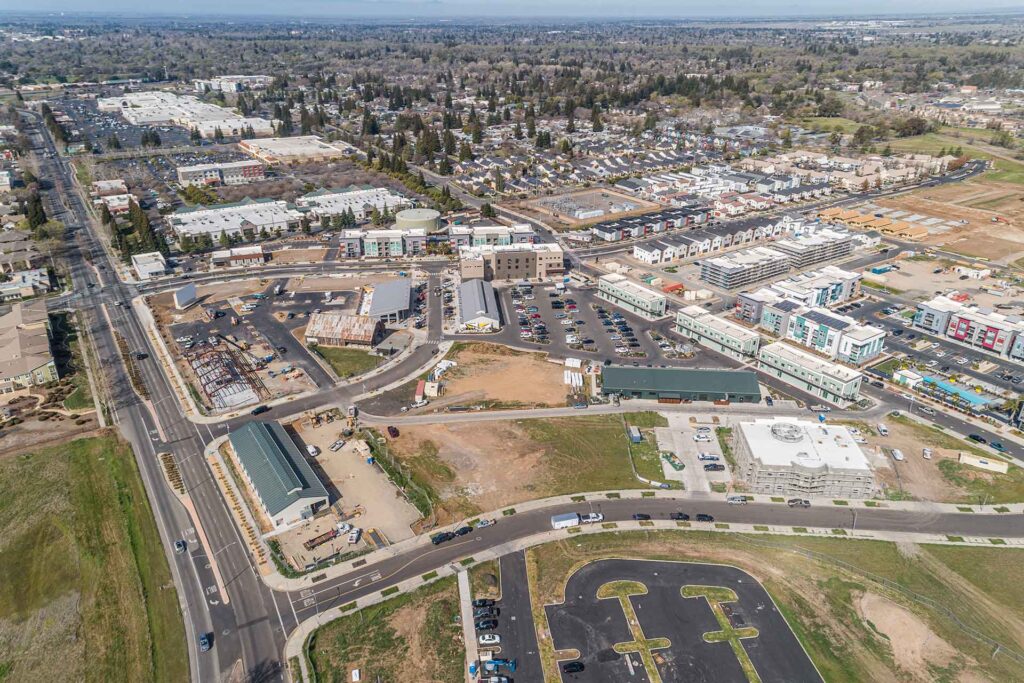Commercial real estate investments have proven to be a great way to increase your income stream and build wealth. Investing in Sacramento is highly viable and accessible with many opportunities, especially when the investor works with an experienced commercial real estate broker. Commercial real estate investments earn money through income and also through appreciation of the property or land over time. An income-producing commercial real estate property can be lucrative. But it’s important that the investor hire the right commercial real estate broker to find the best type of property.
What makes a good commercial real estate investor?
Knowledge of the Market
It helps if the investor has experience investing in commercial real estate, but it’s not mandatory.
Creative
If the investor can envision a unique opportunity to increase the value of a property, it will be more successful from a commercial perspective. Examples include TI upgrades for hybrid offices or using large unused parking lots at a shopping mall for a new business.
Outside the Box Thinker
Have vision. There is real benefit in the investor seeing value or solutions to problems that aren’t immediately visible to other people.
Have a Need
The investor may want to invest money in a property or land. Or they may be renting now and want to own a property as an investment for their business.
Pre-Approved Funding
It is essential that the investor has funding or the ability to get funding prior to investing.
What does being a creative commercial real estate investor entail?
If the investor can envision a potential solution for a problem, commercial real estate is an industry that allows them to be creative in identifying a variety of opportunities. Taking this into account, say an investor owns a shopping center that has issues and they want to sell it because:
- It doesn’t have a lot of activity due to the location
- It has a 25-30 percent vacancy rate
- It looks empty because the vacancies are spread out and there aren’t a lot of cars in the parking lot
What are some options for the investor that will turn a property that wasn’t viable yesterday into a successful venture tomorrow?
- Relocate the tenants from one side over to the other, which will condense all the tenants into a full section of the shopping center.
- Consider demolishing the vacant section to put in high density, residential townhomes or apartments. Hot Tip: Sacramento is always looking for affordable housing.
- Turn part of the vacant property into self-storage.
- Assess the number of parking spaces and have a conversation with the city. Use this space to add something everyone supports.
- Half-acre of land: add an oil change facility
- Acre of land: add a drive through tenant or a car wash
Do Your Research to Hire the Right Commercial Real Estate Broker
There are a number of methods to find the right commercial real estate broker, but there are two primary ways: a) from referrals and b) Google research.
When looking to invest, ask for referrals in golf, tennis or trivia leagues, community events, on social media, in the office or at networking events. It also helps to ask a respected colleague, who invests in real estate, for a referral. Ask them a few general questions to get the ball rolling:
- Where is your broker located and what is their style?
- What kinds of commercial real estate do they typically work with?
- Do you know other investors who work with them?
- What kind of relationship do you have with your broker?
- If you like the answers, ask for an introduction to the broker.
Looking online is also a great place to start. If the potential investor is doing a Google search to look for the right broker, they should keep these things in mind:
- Look locally in their area (or the area they want to invest in)
- Search for the broker’s ranking in the particular sector they are interested in
- Consider a broker who specializes in the area they want to invest in
- Read reviews on Google or Yelp about that broker
- Research both big broker offices and smaller boutique houses – each one has its own pros and cons.
In addition, the Sacramento Business Journal is a great resource for information on happenings in the commercial real estate market. Talented brokers are frequently mentioned in terms of a project they worked on or helped an investor with.
Interviewing Potential Real Estate Brokers
Once the investor has developed a list of potential brokers, they should reach out and set up a couple of meetings to find out how they mesh with the broker. A good broker understands how important this relationship will be to the investor and welcomes conversations prior to making any commitment. It’s important for both sides to understand what the investor is looking to achieve. The investor is going to spend a lot of time with the broker so they should find someone who compliments their communication style. Winning chemistry between them is one of the keys to success.
Capital Rivers has 12 commercial real estate brokers in the Sacramento office. Each one has a different specialty. And each has a unique background in terms of specialty. For example, Ryan Orn’s background includes 20 years spent in the retail sector as a regional sales director with 12-15 stores and 40 employees under him.
Joe Blanton was a food truck operator before coming to Capital Rivers. He grew his business into a franchise named Krush Burger. Joe is the franchisor and has a franchisee with five Krush Burger locations in the United Emirates in Dubai. This experience gives him a great understanding of the food business because he’s experienced the process of creating franchise documents for his own brand. He’s living proof it’s possible to successfully take a food truck and grow it into a brick and mortar with multiple locations.
A Commercial Real Estate Broker Has Been Hired. Now what?
Once the investor has hired a broker, they will meet to talk through the investor’s journey. The following is generally how the process goes in terms of buying a piece of property or land.
- Meet with Broker
- Create investor profile
- Sign contract with Broker
- Create achievement goals: invest how much with suggested timeline
- Educate the Investor on what’s out there
- Ensure there is a pre-approved funding
- Begin looking for a property
- Target Property
- Broker will pull comps, write a review and create an opinion of value
- The review will place a value on where the broker thinks the investor’s property should be marketed in terms of pricing
- It will include market overview and analysis
- Make an offer
- Broker will create the contract, working with the legal department
- Negotiate contract
- TI need to be done?
- Conversations with the city
- Closing
Things to Avoid as an Investor
It’s important the investor feels comfortable with the broker at the outset. The broker should be accessible night and day and on weekends because issues pop up at all hours, 7 days a week. In closing, the investor should avoid the following when making an investment or choosing a broker:
- Choosing a broker with a lack of knowledge: they didn’t listen to the investor’s wants and needs
- Ignoring red flags: Don’t sign with a broker who doesn’t have strong relationships locally/regionally
- Having unrealistic expectations in terms of timing or financial gains
- Being overly emotional – a broker who isn’t a problem solver
Capital Rivers features experts in commercial real estate who keep their ear to the ground at all times. All of the brokers specialize in a specific sector of commercial real estate. They are constantly fine-tuning their market knowledge to best serve their clients. The variety of expertise developed in their careers prior to Capital Rivers benefits the brokers when identifying properties. In addition, it allows the brokers to look at things from a different perspective than just through the lens of commercial real estate.
Capital Rivers operates in a total team environment. They frequently sit down – 12 brokers strong – to assess new opportunities or listings to brainstorm and collaborate. This approach allows Capitals Rivers to have many resources looking at the same property, analyzing the entire deal from start to finish.
…
At Capital Rivers, we love discussing commercial real estate, especially when it comes to Sacramento. If you are interested in learning more, sign up for our email blast or contact us.




